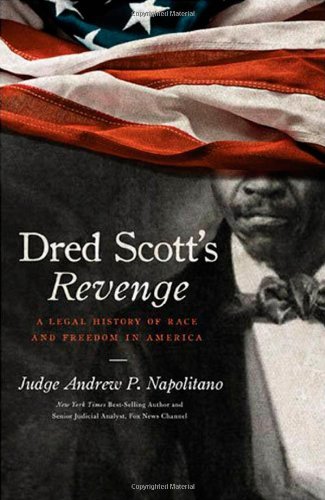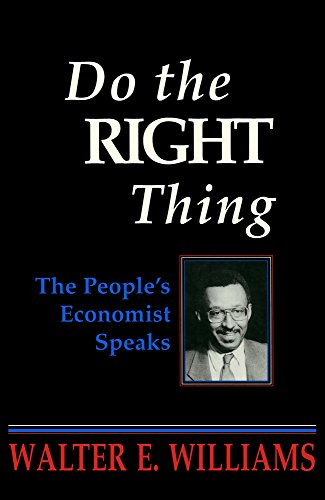Recently by Walter E. Williams: Making Americans Sick
A black or white person, now dead, who lived during the civil rights struggles of the 1930s, ’40s or ’50s, might very well be appalled and disgusted by black behavior accepted today. Yesteryear, it was the Klan or White Citizens Council who showed up at polling places to intimidate black voters. During the 2008 elections, it was the New Black Panthers who showed up at a Philadelphia polling place to intimidate white voters and tell them, “You are about to be ruled by the black man, cracker.” What’s worse is the U.S. Department of Justice has decided to not to prosecute.
Black intimidation of voters, to my knowledge, is rare, but black intimidation of Asians is not. Recent reports out of Philadelphia and San Francisco tell of black students beating up Asian students. The Asian American Legal Defense and Education Fund, in the wake of serious black-on-Asian violence at South Philadelphia High School, charged the district with “deliberate indifference” to the harassment of Asian students and with “intentional disregard” for their welfare.
 Dred Scottu2019s Reven...
Best Price: $3.50
Buy New $14.86
(as of 07:30 UTC - Details)
Dred Scottu2019s Reven...
Best Price: $3.50
Buy New $14.86
(as of 07:30 UTC - Details)
The violence is not restricted to Asian youngsters. Asian adults are included, such as the recent bludgeoning to death of an 83-year-old Chinese man in San Francisco and the pushing of a 57-year-old Asian lady onto Muni subway tracks.
A white Charleston, S.C. teacher frequently complained of black students calling her: white b—-, white m—–f—–, white c— and white ho. Most people would judge that to be racism and demand it to end. Charleston school officials told the teacher this racially charged profanity was simply part of the students’ culture, and if she couldn’t handle it, she was in the wrong school. The teacher brought a harassment suit and the school district settled out of court for $200,000.
 Do the Right Thing: Th...
Best Price: $2.07
Buy New $14.05
(as of 11:12 UTC - Details)
Do the Right Thing: Th...
Best Price: $2.07
Buy New $14.05
(as of 11:12 UTC - Details)
What about black youngsters who hit the books and study after school instead of hitting the streets? Sometimes they are ridiculed as being incog-negro or acting white and the ridicule is often accompanied with life-threatening physical violence. Many blacks, particularly black males, have arrived at the devastating conclusion that academic excellence is a betrayal of their black identity.
The pathology seen among a large segment of the black population is not likely to change because it’s not seen for what it is. It has little to do with slavery, poverty and racial discrimination. Let’s look at it. Today’s black illegitimacy rate is about 70 percent. When I was a youngster, during the 1940s, illegitimacy was around 15 percent. In the same period, about 80 percent of black children were born inside marriage. In fact, historian Herbert Gutman, in “Persistent Myths about the Afro-American Family” in the Journal of Interdisciplinary History (Autumn 1975), reports the percentage of black two-parent families, depending on the city, ranged 75 to 90 percent. Today, only 35 percent of black children are raised in two-parent households. The importance of these and other statistics showing greater stability and less pathology among blacks in earlier periods is that they put a lie to today’s excuses. Namely, at a time when blacks were closer to slavery, faced far more discrimination, more poverty and had fewer opportunities, there was not the kind of chaos, violence, family breakdown and black racism that we see today.
 Intellectuals and political hustlers who blame the plight of so many blacks on poverty, discrimination and the “legacy of slavery” are complicit in the socioeconomic and moral decay. But as Booker T. Washington suggested, “There is another class of coloured people who make a business of keeping the troubles, the wrongs, and the hardships of the Negro race before the public. Having learned that they are able to make a living out of their troubles, they have grown into the settled habit of advertising their wrongs — partly because they want sympathy and partly because it pays. Some of these people do not want the Negro to lose his grievances, because they do not want to lose their jobs.”
Intellectuals and political hustlers who blame the plight of so many blacks on poverty, discrimination and the “legacy of slavery” are complicit in the socioeconomic and moral decay. But as Booker T. Washington suggested, “There is another class of coloured people who make a business of keeping the troubles, the wrongs, and the hardships of the Negro race before the public. Having learned that they are able to make a living out of their troubles, they have grown into the settled habit of advertising their wrongs — partly because they want sympathy and partly because it pays. Some of these people do not want the Negro to lose his grievances, because they do not want to lose their jobs.”




